News Archive
Filter by Division
Filter by Categories
Alec Monovich becomes Dr. Alexander C. Monovich
June 30, 2025 / Phd ProgramIn August 2018, Alexander (Alec) Monovich began a journey that culminated in the successful defense of his doctoral thesis on April 15, 2025. Monovich, who was raised in Naperville, Illinois, joined the Program in Biological Sciences (PIBS) graduate program immediately following his graduation from Grinnell College in Grinnell, Iowa, with a B.A. in Biology. After an exploratory year, Monovich joined the Molecular and Cellular Pathology Graduate Program and later completed his dissertation work in the laboratory of Dr. Russell Ryan, assistant professor of pathology.
Graduating Residents and Fellows Honored
June 26, 2025 / ResidentsFour years ago, a group of eight bright-eyed, newly minted, doctors crossed the threshold of the Department of Pathology to begin their residency training. On Sunday, June 8th, these now well-trained pathology residents, along with the year’s graduating team of fellows and advanced clinical trainees, were celebrated at the annual Residents and Fellows Farewell Celebration held at Weber’s Inn in Ann Arbor.
Resilience, Discipline, Focus, and Relentless Hard Work
June 25, 2025 / Experimental PathologyThe Keys to Dr. Analisa DiFeo's Success
Jessica Teitel becomes Dr. Jessica Teitel
June 24, 2025 / McpOn June 5, 2025, Jessica Teitel completed her doctoral journey in Molecular and Cellular Pathology, defending her thesis, Pan-Cancer Myc Modulator Induces Selective Cell Death Following Mitotic Catastrophe, and earning her PhD. Teitel’s journey began with a Bachelor of Science Honors Degree with Distinction in Biological Sciences from the University of Delaware. This is when she discovered her interest in research and completed a senior honors thesis in a neuroscience/psychology laboratory. Over the summers of her undergraduate years, she interned at Merck. There, she learned molecular biology techniques and was encouraged to pursue graduate studies.
The Mediterranean, Motherhood, and Microbiology
June 18, 2025 / Experimental PathologyDr. Roberta Caruso's Sources of Joy
From Health Lab: Study defines key driver of aggressive ovarian cancer
June 11, 2025 /Study defines key driver of aggressive ovarian cancer
Researchers created a mouse model to understand how the gene CDK12 drives high-grade serous tubo-ovarian carcinoma and identify potential treatment approaches
From a Simple Start to a Simple Ending
June 11, 2025 / Faculty SpotlightDr. Greg Dressler retires from the Department of Pathology
DiFeo Lab Undergraduate, Harini Ram, named 2025 Astronaut Scholar
June 10, 2025 / AwardIn the Department of Pathology, we have scholars at all levels working in our laboratories. One of these, undergraduate Harini Ram, was recently recognized as the recipient of the 2025 Astronaut Scholarship, the only one to receive this scholarship from the University of Michigan this year, and only the 18th in the history of this award. According to the Astronaut Scholarship Foundation, this award is presented to students in their junior or senior year of college who are pursuing a STEM field (science, technology, engineering, or mathematics) with the intention of conducting research or advancing their field upon completion of their final degree. These scholars represent the “best and brightest minds in STEM who show initiative, creativity, and excellence in their chosen field,” reports the Astronaut Scholarship Foundation.
Setting Off a Chain Reaction
June 9, 2025 / TransplantImagine your friend is in kidney failure and desperately needs a new kidney. You are tested, but you are not a close enough match. You watch as your friend struggles to survive, going through dialysis. You feel helpless…but there is nothing you can do. Or is there?
The University of Michigan participates in the nationwide paired donation program that enables patients on the kidney transplant list to obtain donor kidneys more quickly [...]
Bidding Farewell to Kevin Newman, A Champion for Pathology
June 6, 2025 /MGROW Team Member Champion Award Winner Announced: Lynn McCain’s Food Truck Idea Takes the Prize
June 5, 2025 /The Department of Pathology is pleased to announce Lynn McCain as the winner of Michigan Medicine's inaugural MGROW Team Member Champion Award. McCain's creative and practical solution stood out among 53 submitted ideas aimed at reducing administrative burden and inefficiencies.
The Path to Discovery
June 4, 2025 / Faculty SpotlightDr. Jennifer Brazil's Contributions to Inflammatory Bowel Disease Research
Enhancing Heart Failure Patient Care with the MOS Dashboard
June 3, 2025 / DqhiHeart failure with reduced ejection fraction (HFrEF), which measures your heart’s ability to pump oxygen-rich blood out to your body, remains a leading cause of death and hospitalization worldwide. Over the last three decades, clinical trials have highlighted the efficacy of four key medication classes- Beta-blockers, angiotensin-converting enzyme inhibitors (ACEis), angiotensin receptor-neprilysin inhibitors (ARNI), and sodium-glucose cotransporter 2 inhibitors (SGLT2i). Together, these medications form the pillars of guideline-directed medical therapy (GDMT), which has significantly improved patient outcomes, contributing to up to a 70% reduction in mortality among HFrEF patients.
Translational Research Training Program Retreat
June 2, 2025 / Phd ProgramA fascinating glimpse into cutting-edge research
It's OK to Change Your Mind
May 27, 2025 / Faculty SpotlightDr. Catherine Ptaschinski Tells Her Story
Faculty Promotions Announced
May 20, 2025 / FacultyOn April 15, 2025, the Board of Regents announced faculty who were approved for promotion, and fifteen Pathology faculty are included on the list! These promotions will become effective on September 1, 2025. Please join us in congratulating our faculty
Lab Coats and Curiosity: Youth Summit at the Big House Inspires Future Healthcare Leaders
May 15, 2025 / OutreachThe 2025 Youth Summit gave students a hands-on introduction to healthcare careers through an engaging microbiology lab simulation, where they explored real diagnostic techniques and met professionals from across Michigan Medicine. The event inspired curiosity, confidence, and a deeper understanding of the critical role laboratory science plays in patient care.
MCP Student Grace McIntyre Awarded Rogel Cancer Center Graduate Student Scholarship
May 12, 2025 / Phd ProgramRichard and Susan Rogel were passionate about supporting the education of the next generation of physicians and researchers. In their honor, the Rogel Cancer Center Graduate Student Scholarship was established. These scholarships are awarded to graduate students who display outstanding potential in the field of cancer research. This year, Molecular and Cellular Pathology Graduate Student Grace McIntyre was selected to receive this $25,000 award.
Apheresis Team Earns National Recognition for Outstanding Patient Experience
May 12, 2025 / ApheresisThe Apheresis Team at University Hospital has been nationally recognized for ranking in the top quartile for patient experience in the “Overall rating of care” metric, based on Press Ganey survey results.
Dr. Andrew Valesano selected as Assistant Chief Resident
May 7, 2025 /DiFeo Lab Recognized with Outstanding Journal Article Award
May 5, 2025 / Ovarian CancerThe Molecular and Cancer Therapeutics journal recently awarded Dr. Analisa DiFeo, professor, with their annual Outstanding Journal Article Award for 2025 for her article “Small Molecule Mediated Stabilization of PP2A Modulates the Homologous Recombination Pathway and Potentiates DNA Damage Induced Cell Death.” The journal editors select the best article published over the previous two years, focusing on “articles that have the potential to shift paradigms, inspire translational activity, and raise awareness of new scientific areas.” Articles that exhibit novelty, scientific merit, and impact are prioritized.
USCAP's Inaugural Observership Completed at Michigan Medicine's Department of Pathology
April 28, 2025 / EducationHe Went to the Shed
April 28, 2025 / StaffLogistics Coordinator Chris Smith Shares His Story
Clinical Pathology Symposium Provides a Fascinating Look at Science and Sustainability
April 25, 2025 / Clinical PathologyThe Department of Pathology’s Clinical Pathology Symposium, held on April 22nd, offered participants opportunities to learn about sustainability, heavy metal toxicities, and a legal victory. Participants also engaged with booths offering trivia, games, prizes, and a chance to learn what others in the laboratory do. In honor of Earth Day, this symposium offered sustainable food options and zero-waste products.
Save a Life - Give blood! Critical shortage of Type O
April 22, 2025 / Blood DrivesThe American Red Cross is holding blood drives with a critical need for donors and an emergency shortage of Type O blood and platelets. Please consider donating blood and saving a life!
To schedule an appointment, log onto RedCrossBlood.org (sponsor code: goblue) or call 1-800-RED-CROSS (1-800-733-2767). Appointments are highly recommended. Walk-ins accepted as space permits. Photo ID required.
The Unseen Heroes of Healthcare
April 21, 2025 / Lab WeekCelebrating Laboratory Professionals Week.
Honoring Pathologists' Assistants: Celebrating Their Vital Role in Healthcare
April 14, 2025 /On April 14, we celebrate Pathologists' Assistants (PAs) for their vital role in healthcare, assisting in disease diagnosis through specimen examination, autopsies, and laboratory management. Their expertise ensures accurate diagnoses and improved patient outcomes, making them essential yet often unsung heroes in medicine.
Noah Puleo becomes Dr. Noah Puleo
April 7, 2025 / Phd ProgramWe are excited to announce another new PhD from our Molecular and Cellular Graduate Program! Noah Puleo, PhD, successfully defended his thesis “Identification of Novel Mechanisms and Drivers of Ovarian Cancer Carcinogenesis and Chemotherapy Resistance,” the culmination of his educational journey, which also included a graduate certificate in Precision Health.
The Many Facets of Life
April 2, 2025 / Faculty SpotlightIntroducing Navin Mahadevan, MD, PhD
Kamran Mirza, MD, PhD Receives PAPs Distinguished Service Award
April 1, 2025 / EducationWe are pleased to announce that Kamran Mirza, MD, PhD, professor of pathology and assistant chair for pathology education, was awarded the Pakistani-American Pathologists’ Society’s Distinguished Service Award at the United States and Canadian Academy of Pathology. This award recognizes visionary pathology leaders whose impact will be felt for generations.
Laura Jacobus wins GME Program Administrator Excellence Award
March 31, 2025 / EducationWe are pleased to announce that Laura Jacobus has been selected as the recipient of the 2025 GME Program Administrator Excellence Award by the Graduate Office of Medical Education at Michigan Medicine. Awardees are nominated by colleagues and selected by a committee of their peers. This is a highly competitive award that recognizes the service, spirit, and initiative of the nominee.
Dr. Abhijit Parolia - A Rising Scholar
March 21, 2025 / Prostate CancerOn Thursday, March 20th, the National Institutes of Health, National Cancer Institute presented its Rising Scholars Lecture with pathology’s Dr. Abhijit Parolia, assistant professor of experimental pathology, entitled NSD2 is a requisite subunit of the AR/FOXA1 neo-enhanceosome in promoting prostate tumorigenesis. Rising Scholar lectures showcase NCI-supported early career researchers with outstanding research findings.
Match Day 2025: Welcoming the Next Generation of Pathologists to Michigan Medicine
March 21, 2025 / ResidentsThe University of Michigan’s Department of Pathology is celebrating Match Day 2025, a pivotal moment when aspiring pathologists discover where they will continue their residency training. Those joining U-M Pathology will benefit from cutting-edge research, state-of-the-art laboratories, and a collaborative learning environment as they embark on their journey to shape the future of diagnostic medicine.
MCP Graduate Student Shih-Chun Alec Chu becomes Dr. Chu
March 18, 2025 / Phd ProgramCongratulations to Molecular and Cellular Pathology graduate student Shih-Chun Alec Chu for successfully defending his thesis, “Multimodal and Multiomic Integration in Precision Oncology” earning the coveted PhD degree.
Expect the Unexpected: MEST Cases in the Male Reproductive Tract
March 10, 2025 / EducationOne of the key qualities of expert pathologists is that they learn to expect the unexpected. In the Michigan Medicine Department of Pathology, our pathologists and collaborators recently reported on some of these unexpected findings.
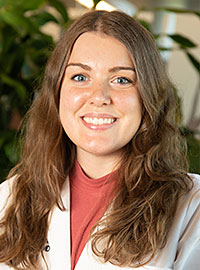 Mixed epithelial and stromal tumors (MESTs) are rare, usually benign tumors that are typically found in the kidney in perimenopausal women. These tumors can clinically mimic malignant tumors, so accurately identifying them is essential. Most of the time, these tumors are found incidentally, but some patients will present with abdominal or flank pain.
Mixed epithelial and stromal tumors (MESTs) are rare, usually benign tumors that are typically found in the kidney in perimenopausal women. These tumors can clinically mimic malignant tumors, so accurately identifying them is essential. Most of the time, these tumors are found incidentally, but some patients will present with abdominal or flank pain.
Using Technology to Advance Patient Care and Safety
March 5, 2025 / Blood BankMichigan Medicine First in State to Join the Alloantibody Exchange
Celebrating Our Residents and Fellows on Thank a Resident Day
February 28, 2025 / ResidentsPathology is a field that thrives on curiosity, precision, and collaboration—and our residents and fellows embody these qualities every single day. Their dedication, resilience, and commitment to learning are the heartbeat of our department, shaping not just the present but also the future of pathology.
Re-envisioning a Modern Informatics Ecosystem
February 12, 2025 / DggDr. Daniel Hovelson Directs DGG Informatics Efforts
Celebrating our Phlebotomists
February 10, 2025 / PhlebotomyThey are the Gift that Keeps on Giving
CAP Today Features U-M Pathology's Digital Pathology Service
January 29, 2025 / Anatomic PathologyWhen one hears “Artificial Intelligence” – what comes to mind? For some, it may be Terminator-style beings or rogue artificial life forms. In Pathology, however, AI is bringing enhanced patient care and improved satisfaction to pathologists, patients, and clinicians alike. In a recent article in CAP Today, Michigan Medicine’s Department of Pathology was highlighted for its advanced digital pathology workflows. Drs. Ul Balis and Mustafa Yousif described the process for initiating digital pathology into our standard of care, which required significant advanced facilities planning, research, development, and investments.
Collaboration between cytopathologists and clinical team leads to a publication in Thyroid® : Official Journal of the American Thyroid Association
January 28, 2025 / CytopathologyMultidisciplinary team collaboration is essential in clinical research, as it brings diverse expertise and perspectives to enhance the comprehensiveness and quality of studies. Our recent publication “Performance of Arima Genomic Sequencing Classifier in Binary Subcategories of Atypia of Undetermined Significance Thyroid Nodules: Single Versus Repeated Diagnosis” in Thyroid®, a prestigious official journal of the American Thyroid Association, exemplifies this approach. Authored by Drs. Xiaobing Jin (the first author), Madelyn Lew, Amer Heider, and Xin Jing (senior author), as well as Brian Smola, CT, and a group of clinicians specialized in thyroid diseases, this study represents a significant collaboration between cytopathologists and clinicians. It highlights the importance of multidisciplinary teamwork in advancing medical research and achieving impactful publications.
Medicolegal Death Investigators – The Career You Didn’t Know Existed
January 27, 2025 / Anatomic PathologyAt the University of Michigan, we constantly uncover new career options that many of us never realized existed. One of these is our Medicolegal Death Investigators. The Department of Pathology is home to eight Medical Examiner Investigators (MEIs), six of which are Diplomates of the American Board of Medicolegal Death Investigators (D-ABMDI): Chelsea Cammarata, Lindsay Crater D-ABMDI, Edward Farrugia D-ABMDI, Jessica Hagan D-ABMDI, Eric LaPres D-ABMDI, Monique Micallef D-ABMDI, Troy Murrish D-ABMDI, and William Piper RN, MSN.
Brian Wright Retires After 40 Years of Service
January 23, 2025 / RetirementIn 1985, the field of toxicology, the study of various drugs, metals, and poisons in the body, was reporting research on how to measure cannabinoids in the blood, calculate blood alcohol levels, and the dangers of using propylene glycol as part of intravenous injections. It was also the year that the Department of Pathology welcomed a new member to their toxicology laboratory, medical laboratory professional Brian Wright. Wright had just graduated from the University of Michigan with a bachelor’s degree in Medical Technology and Microbiology. His interest in pathology was sparked by performing scientific testing on biological specimens during his undergraduate training.
Honor the Past...Ignite the Future
January 20, 2025 / Gi PathologyIf at any point you worked or trained in the Department of Pathology at the University of Michigan, you likely had an opportunity to work alongside some of the most highly regarded pathologists and staff in the world. We are lucky to have so many dedicated mentors in our department, who have devoted themselves to enhancing the lives and careers of our trainees. Three of these mentors have affected hundreds of trainees over the years, namely Henry Appelman, MD, Barbara McKenna, MD, and Joel Greenson, MD. These three outstanding pathologists, teachers, and mentors were pioneers in our world-renowned gastrointestinal pathology service.
Is it Cancer? Patient-Centered Pathology Reports vs. Standard Pathology Reports in a new study from the Department of Pathology at Michigan
January 6, 2025 / Clinical ResearchImagine you are a patient who just had a biopsy completed. You wait nervously for the results and check your patient portal to see if any results have been received. After an anxious couple of days, you receive the results, only to read them and have no idea what they mean. It is Friday afternoon, your doctor’s office is closed, and you fret all weekend. This scenario plays out frequently and was the impetus for a research study conducted by Dr. Cathryn Lapedis and colleagues.
Honoring Dr. Jeffrey Myers: A Trailblazer in Pathology Moves to Retirement
December 20, 2024 / RetirementReflecting on a Career Filled with Innovations, Leadership, and Lasting Impact
MSTP/MCP Student Kristen Lozada Soto Successfully Defends Her PhD Thesis
December 19, 2024 / Phd Program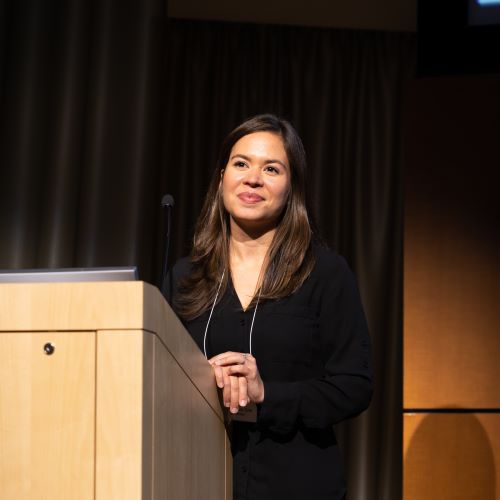 Congratulations to Dr. Kristen Lozada Soto, who successfully defended her thesis Claudin-23 Regulates Intestinal Epithelial Barrier Function and Mucosal Wound Repair on Monday, December 9, 2024, marking a significant milestone in her journey to becoming a physician scientist. As a Medical Scientist Training Program (MSTP) fellow at the University of Michigan, her doctoral work has unveiled exciting new insights into the mechanisms by which a tight junction protein, Claudin-23, regulates intestinal epithelial barrier function and mucosal wound repair. When reflecting about her PhD research contributions she states “it is so exciting to envision how this work can help pave the way for identifying novel therapeutic targets for people with ‘leaky gut’ or those with compromised wound repair, as is typically the case in people with inflammatory bowel disease (IBD). This is exactly why I love training to become a physician-scientist - we get to connect the dots between discoveries and real patient care.”
Congratulations to Dr. Kristen Lozada Soto, who successfully defended her thesis Claudin-23 Regulates Intestinal Epithelial Barrier Function and Mucosal Wound Repair on Monday, December 9, 2024, marking a significant milestone in her journey to becoming a physician scientist. As a Medical Scientist Training Program (MSTP) fellow at the University of Michigan, her doctoral work has unveiled exciting new insights into the mechanisms by which a tight junction protein, Claudin-23, regulates intestinal epithelial barrier function and mucosal wound repair. When reflecting about her PhD research contributions she states “it is so exciting to envision how this work can help pave the way for identifying novel therapeutic targets for people with ‘leaky gut’ or those with compromised wound repair, as is typically the case in people with inflammatory bowel disease (IBD). This is exactly why I love training to become a physician-scientist - we get to connect the dots between discoveries and real patient care.”
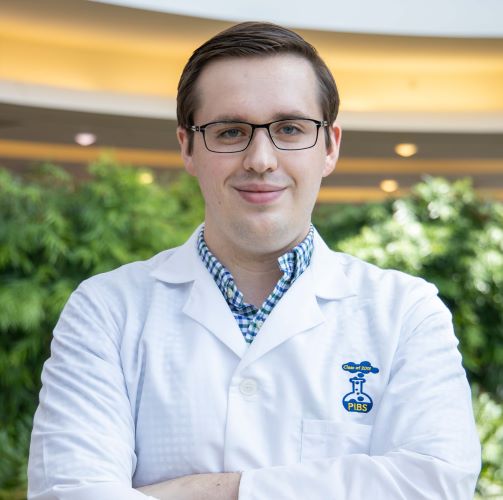


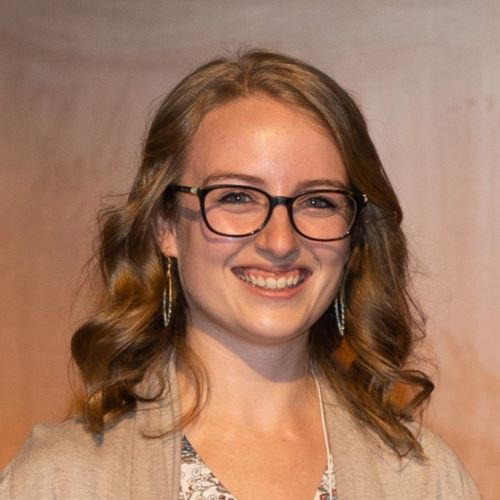

.png)

 and Bob Denham (recipient) - Kidney donor 500.jpg)
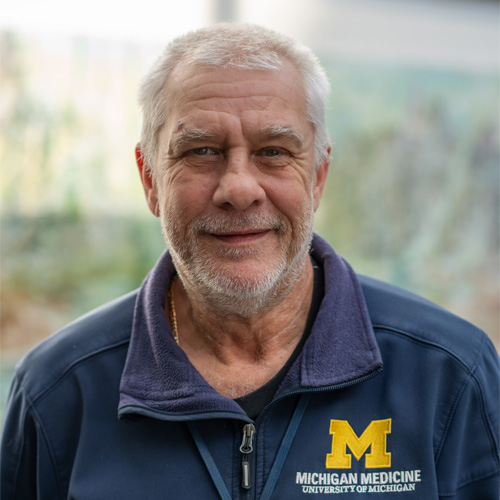
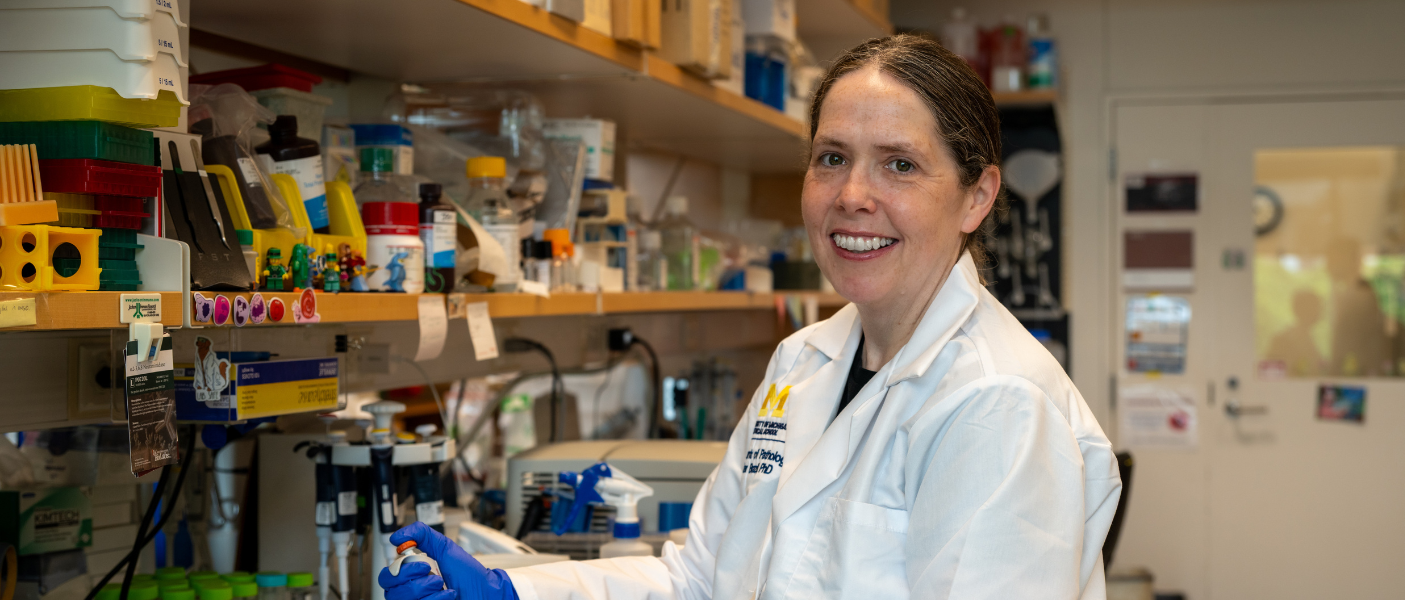

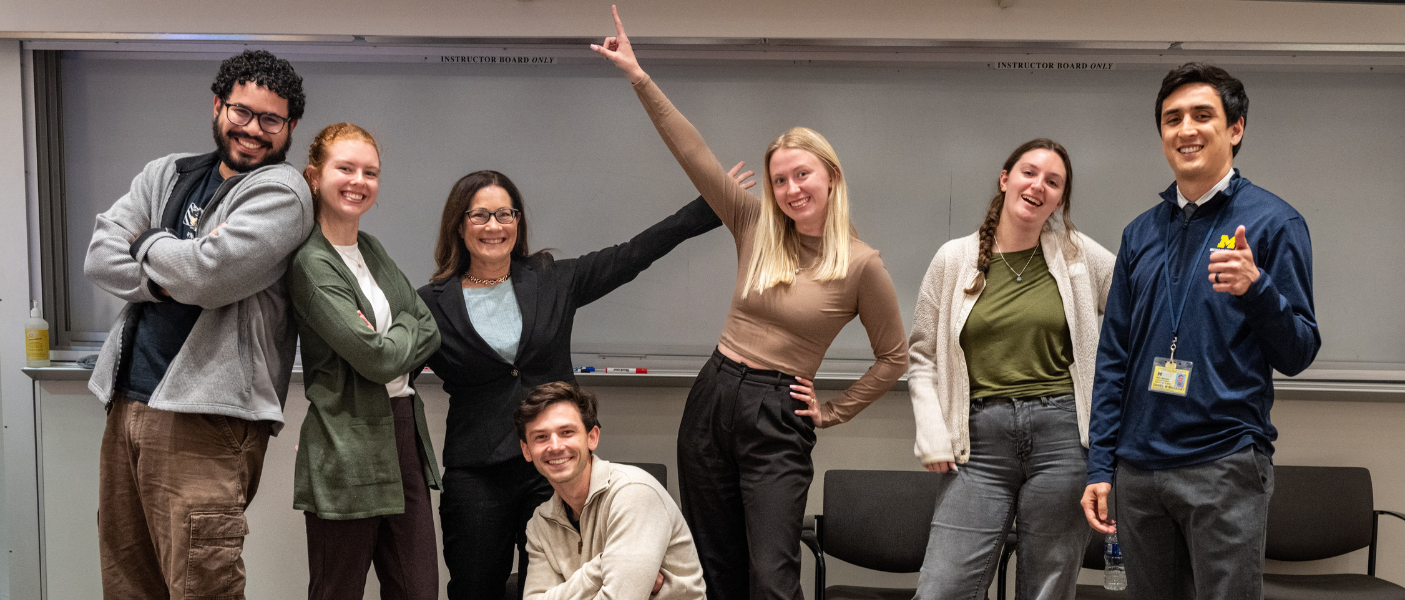




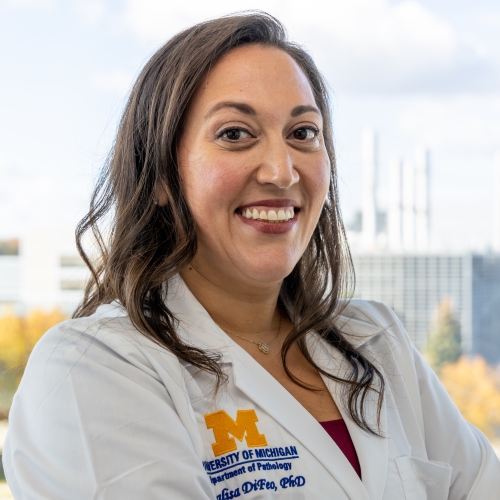


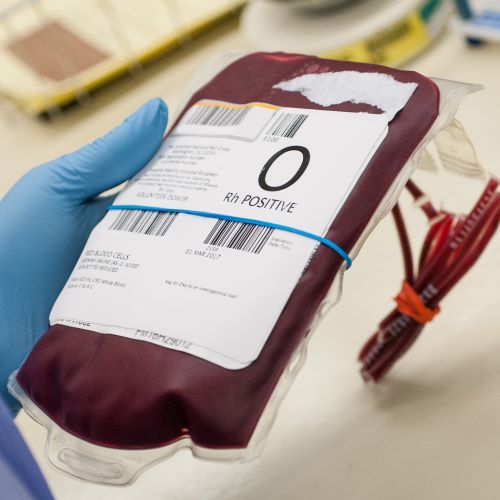
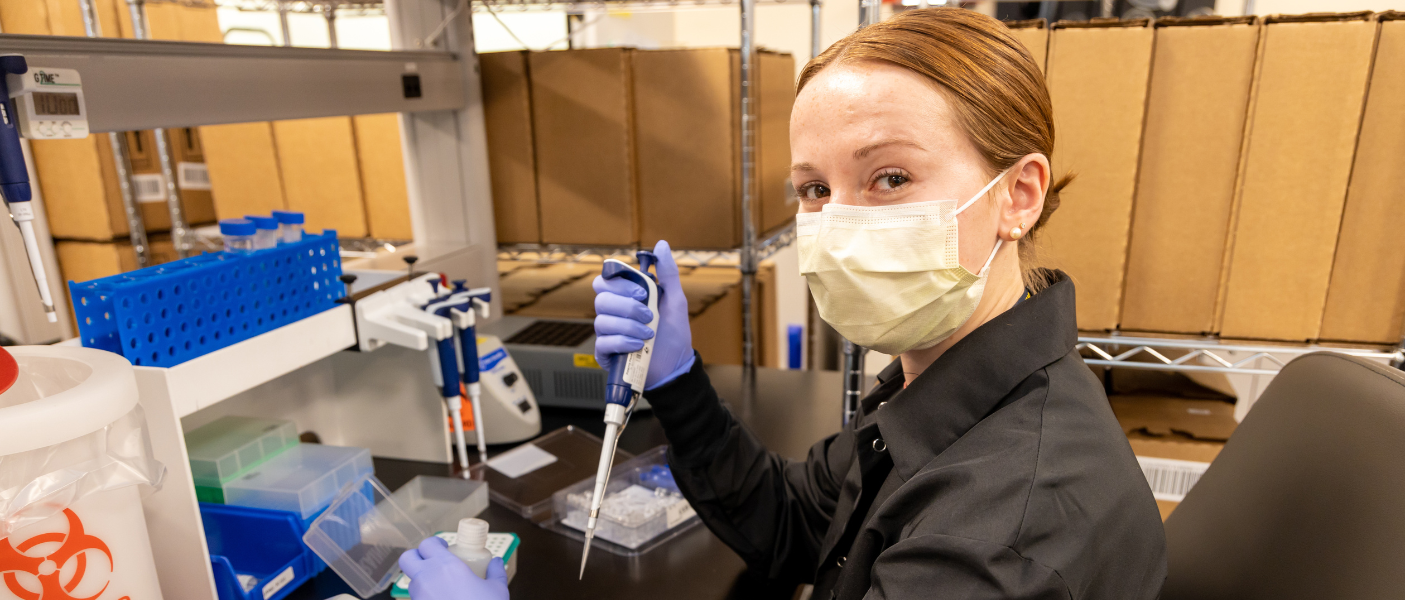


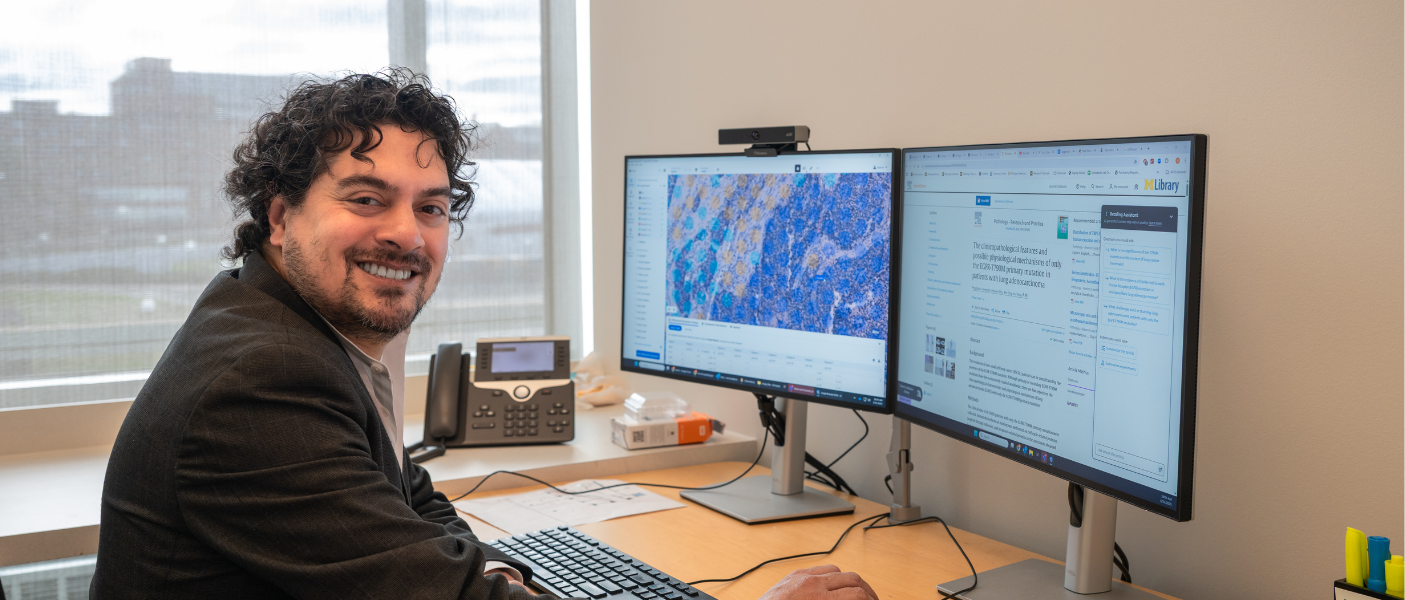
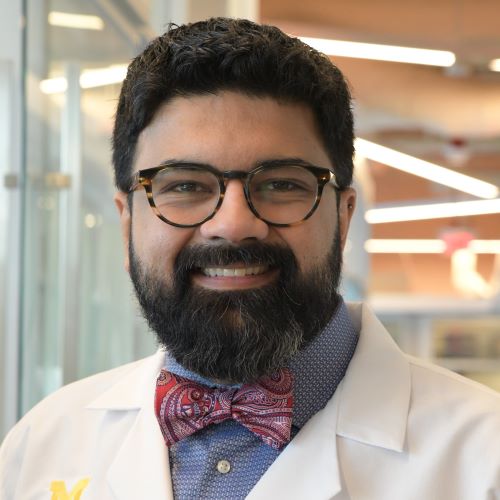

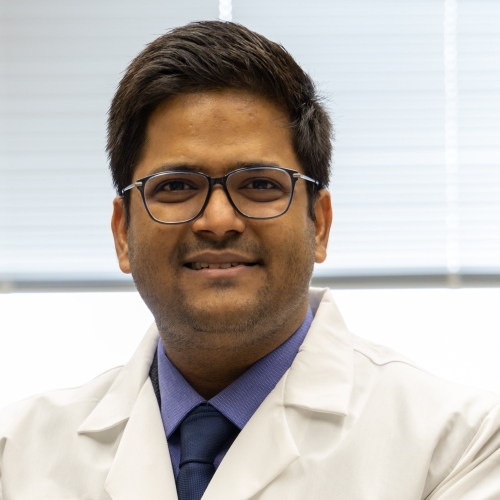

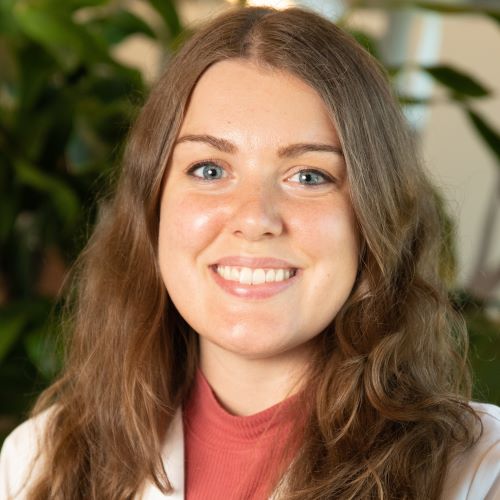

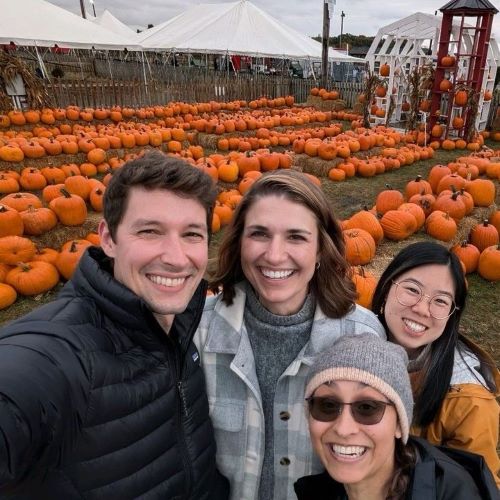



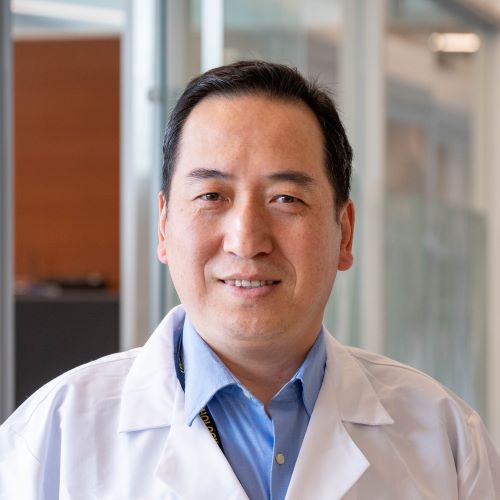
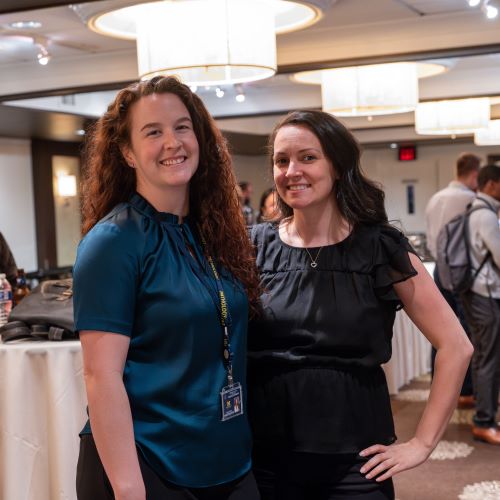

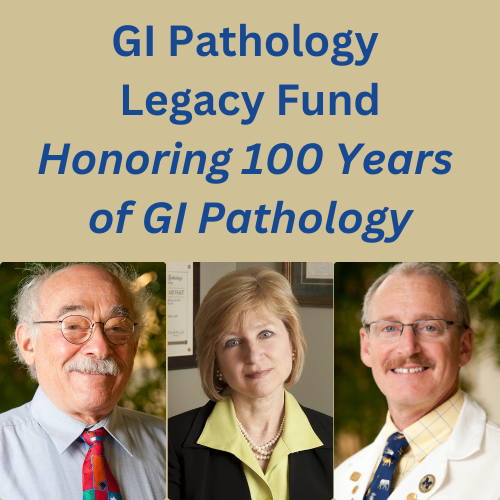
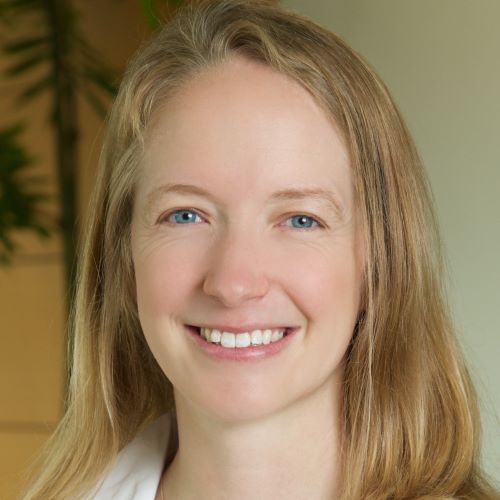


 ON THE COVER
ON THE COVER
 ON THE COVER
ON THE COVER
 ON THE COVER
ON THE COVER
 ON THE COVER
ON THE COVER
 ON THE COVER
ON THE COVER
 ON THE COVER
ON THE COVER
 ON THE COVER
ON THE COVER
 ON THE COVER
ON THE COVER
 ON THE COVER
ON THE COVER
 ON THE COVER
ON THE COVER
